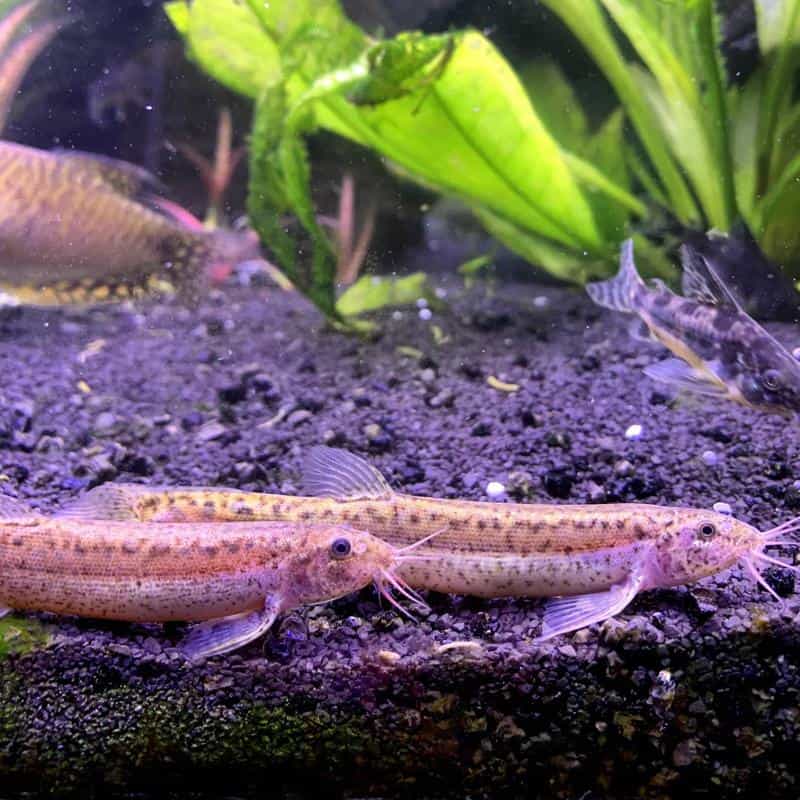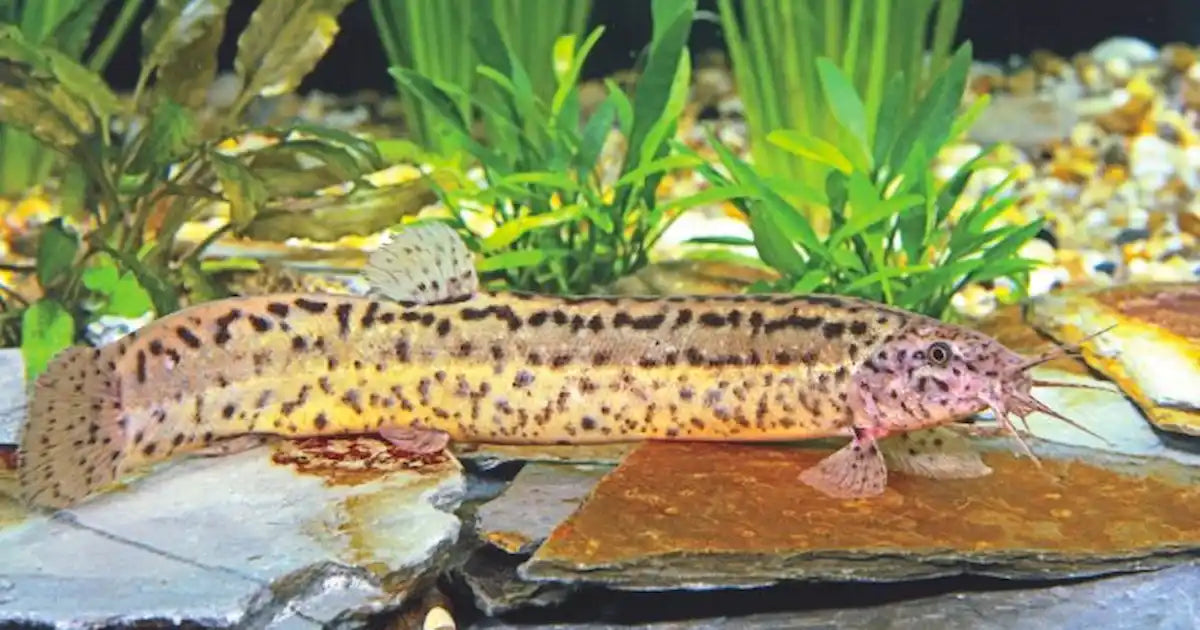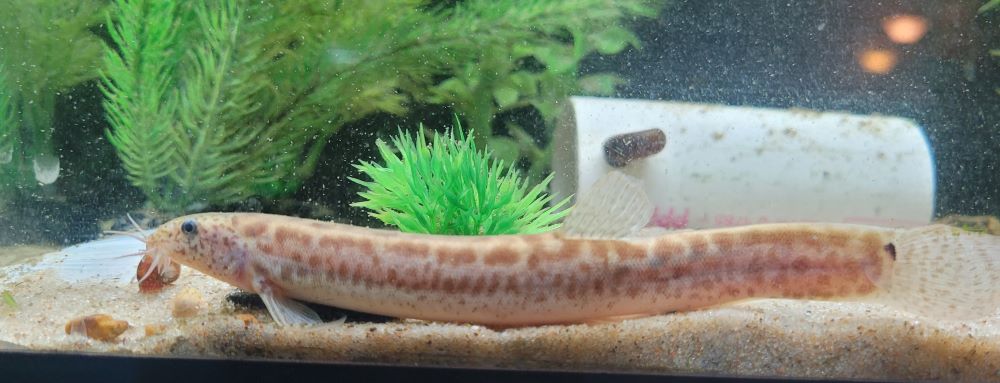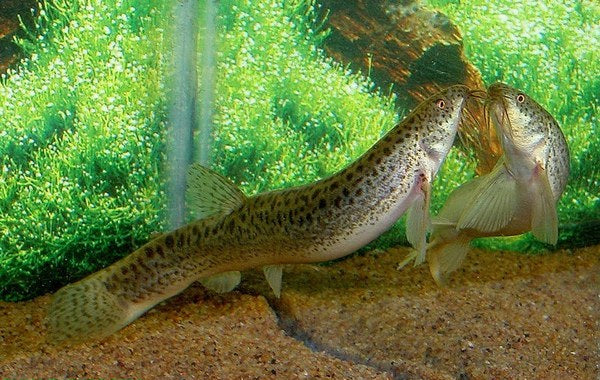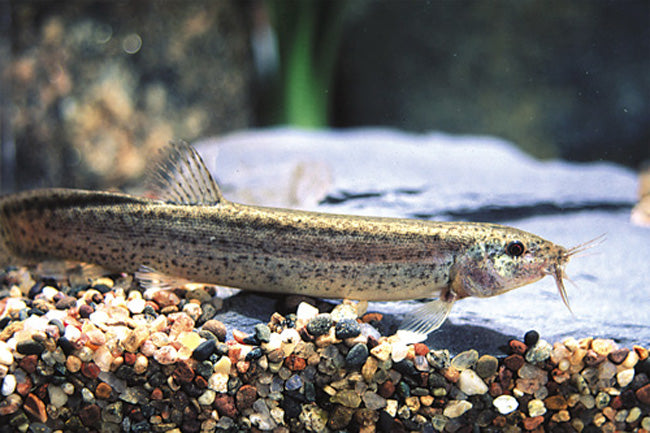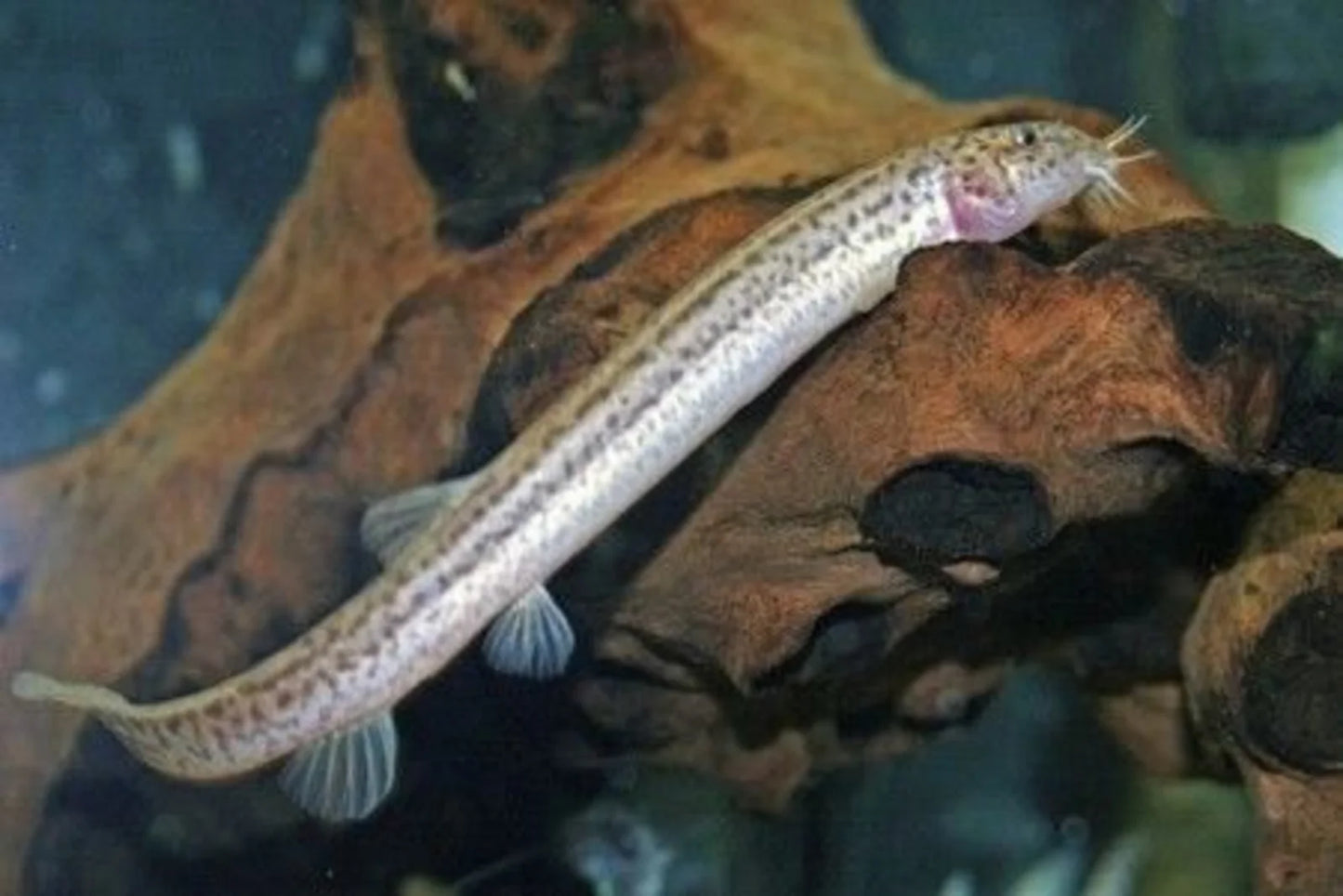Dojo Loach (Misgurnus anguillicaudatus) - Live Fish
Dojo Loach (Misgurnus anguillicaudatus) - Live Fish
Total items
Product subtotal
Detailed Description
Detailed Description
The Dojo Loach (Misgurnus anguillicaudatus), also known as the Weather Loach or Japanese Weather Loach, is a unique and hardy freshwater fish from the family Cobitidae. Native to East Asia, particularly Japan, China, and Korea, this species is known for its elongated, eel-like body, peaceful temperament, and the ability to exhibit interesting behavior, such as "weather prediction," which has earned it its nickname. The Dojo Loach is often kept in aquariums for its lively character, adaptability, and ability to thrive in a variety of conditions.
Physical Description:
Size: Dojo Loaches can grow quite large for loaches, reaching lengths of 6 to 12 inches (15 to 30 cm) in the aquarium, though they can grow even larger in the wild.
Body Shape: Their body is long, cylindrical, and slightly flattened laterally, resembling an eel or snake. They have small fins relative to their body size, with a long dorsal fin that runs along much of their back.
Coloration: Dojo Loaches are generally light brown, tan, or beige, with darker spots or blotches across their body, giving them a camouflaged, natural appearance. Some individuals may display a more uniform color, while others exhibit more defined markings.
Face: They have a small mouth with several pairs of barbels on the upper and lower jaw, which they use to sense food in the substrate.
Origin: Dojo Loaches are native to slow-moving rivers, ponds, and streams in East Asia, particularly in regions with a soft, silty substrate, often in areas that experience fluctuating temperatures.
Temperament: Dojo Loaches are peaceful and social, often seen interacting with other species in the tank. They are bottom dwellers, frequently foraging through the substrate for food, and can be quite active, especially during the night when they are most active. These loaches are known for their inquisitive nature and will often explore their environment, squeezing into small crevices or hiding spots.
Weather Prediction: One of the most fascinating aspects of Dojo Loaches is their behavior during changes in atmospheric pressure. They are believed to be able to sense weather changes, such as drops in barometric pressure, and may become more active or swim erratically when a storm or weather front is approaching, earning them the nickname "weather loach."Diet: Dojo Loaches are omnivorous and opportunistic feeders, scavenging both plant material and small invertebrates in the wild. In an aquarium, they will happily consume a wide variety of foods, including high-quality pellets, flakes, live or frozen foods (such as bloodworms, brine shrimp, and daphnia), and vegetables like blanched spinach or zucchini. They are also known to enjoy digging through the substrate to find any leftover food.
Feeding Behavior: These loaches have a strong instinct to forage, and they often hunt for food at the bottom of the tank, using their barbels to detect tiny particles.
Tank Size: Due to their potential size and activity level, Dojo Loaches require a larger aquarium, ideally 30 gallons (113 liters) or more for a single specimen. A larger tank is recommended if keeping more than one loach or keeping them with other species.
Water Parameters: They are hardy and adaptable to a wide range of water conditions, but they thrive best in slightly acidic to neutral water (pH 6.5-7.5). Water temperature should range from 50°F to 75°F (10°C to 24°C), which is lower than many tropical species, making them an ideal species for cool-water tanks. They prefer well-oxygenated water with a moderate flow and may benefit from a filtration system with some current.
Substrate: A fine, sandy substrate is preferred to avoid injury to their sensitive barbels, as they often dig and burrow in search of food. Avoid sharp gravel or rough materials.
Tank Setup: Dojo Loaches appreciate tanks with plenty of hiding places, such as caves, plants, and driftwood, to mimic their natural habitat. They do best in tanks with other peaceful species, including other loaches, peaceful barbs, or small tetras. They are not aggressive and will rarely cause harm to other fish, but they can be territorial with their own kind.
Compatibility: Dojo Loaches are generally peaceful and can be kept with a variety of tank mates, including other species of loaches, peaceful community fish, or even certain types of snails. However, they may be territorial with other Dojo Loaches, especially in smaller tanks. Larger fish or aggressive species should be avoided, as they may bully the loaches or compete for food. Dojo Loaches are also not known to harass plants, but they may occasionally uproot delicate specimens while foraging.
Product features
Product features
Materials and care
Materials and care
Merchandising tips
Merchandising tips
Share
